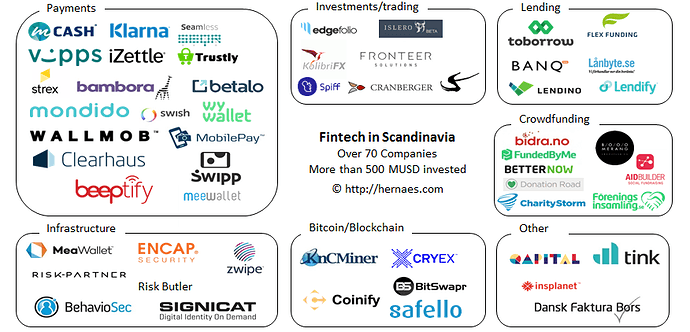Pay
SumUp: Headquartered in London, supports more than 3.5 million merchants in over 30 markets worldwide, and operates a product suite of tailor-made business tools created specifically for the micro and nano-segment. It works in the same way that Square, with a pocket size device to receive payments from credit or debit cards.
Invest
Freetrade: develops a fee-free platform for investing in stocks and funds.
With more than 1m users at present, the company aims to make investing simpler and more affordable for retail customers via its mobile app.
Borrow
Nexo: allows you to borrow against your crypto assets held in the platform.
It currently manages assets for 5М+ users across 200 jurisdictions.
Save
Moneybox: develops an award-winning mobile app that provides easy access to shares and savings ISAs.
The app combines savings, home-buying, retirement services and investments into one app, thereby helping users with financial planning.
Lend
Prodigy Finance: operates a global platform which provides loans to people studying for a Master’s degree abroad.
It’s funded by institutional and private investors, with bonds created to fund classes of students being listed on the Irish Stock Exchange, Alumni, impact funds and high-net-worth individuals can then invest in loans.
Insure
Peppercorn: provides a digital, personalized, and automated car insurance service to its customers, combines underwriting rules, technology, cutting-edge data, AI and a re-imagined CX to deliver a self-service lower cost product to the marketplace.
First UK Insurtech to get EIS relief.
The UK and Europe are flooded by Fintechs focusing on payments, investing, saving and insurance or a combination of these, who compete with one another in an oversaturated market where new startups burn too much cash too quickly and the good old times of raising hundreds of millions with no special effort are gone.
Nevertheless, there’s a massive opportunity in the borrowing and lending space and with crypto and blockchain technology both come by hand through a peer to peer method of transacting finances.
Little or loads, anybody can borrow and lend in an open system where nobody is discriminated by the size of their financial influence thanks to these technologies. The protocols built today and deployed tomorrow are the ones which will make this reality possible.


 – Offers multi-currency accounts, crypto trading, and stock investments.
– Offers multi-currency accounts, crypto trading, and stock investments. – Digital banking with budgeting tools and seamless mobile experience.
– Digital banking with budgeting tools and seamless mobile experience. – Focuses on sustainability, allowing users to invest deposits in eco-friendly projects.
– Focuses on sustainability, allowing users to invest deposits in eco-friendly projects. – Business banking with automation tools for invoices and expenses.
– Business banking with automation tools for invoices and expenses. – Business accounts with integrated bookkeeping for freelancers and SMEs.
– Business accounts with integrated bookkeeping for freelancers and SMEs. – (BNPL) solutions for consumers.
– (BNPL) solutions for consumers. – Digital asset exchange offering stocks, crypto, and precious metals.
– Digital asset exchange offering stocks, crypto, and precious metals. – Issues tokenized e cash on blockchain, bridging traditional finance with DeFi.
– Issues tokenized e cash on blockchain, bridging traditional finance with DeFi.